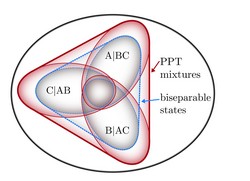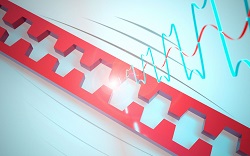Quantum entanglement and information
In the quantum world, particles behave differently than the objects in the macroscopic world we see and touch around us. In fact, particle entanglement is the most intriguing consequence of the laws of quantum mechanics and a prerequisite for the physical implementation of quantum computers. The EU-funded project ENFOQI (Entanglement and the foundations of quantum information) focused on the characterization of entangled particles in experiments and also their theoretical study. Researchers investigated entanglement between three or more particles. One of the main result of the researchers is the definition of a computable measure, allowing verification and quantification of genuine entanglement. The new criterion is based on the partial transpose of separable states that must be positive. Researchers used this approach to detect entanglement in the vicinity of Dicke states. In addition, they identified a new class of entangled states, the so-called hypergraph states. This generalisation of graph states is related to multi-particle states interacting with local auxiliary systems. Hypergraph states occur naturally during the analysis of quantum algorithms and can also be used for quantum fingerprinting protocols. Such entangled states offered researchers an excellent test bed to explore the subtleties of multi-particle entanglement. On a more fundamental level, according to quantum mechanics, the results of an experiment depend on which observables are measured simultaneously. This property is called contextuality and can be quantified in any given quantum setting. Research within ENFOQI established a link between this quantum contextuality and theoretical concepts of quantum information. More importantly, ENFOQI helped to better integrate the Theoretical Quantum Optics group at the University of Siegen(opens in new window) into the academic community. With EU funds, researchers could participate in international conferences while a series of workshops were organised that attracted experts in quantum entanglement and information processing.







